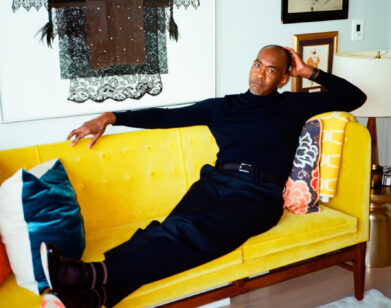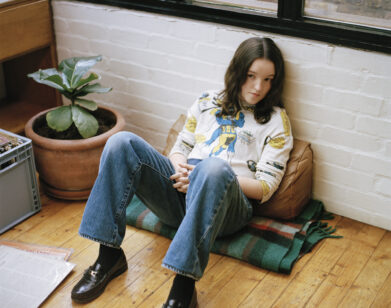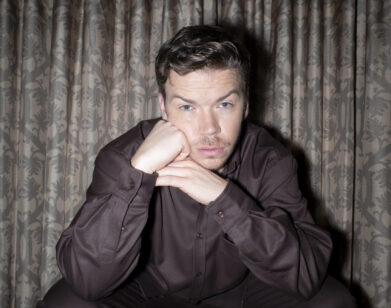Home for the Holidays
“There is everything there in that house,” remarks Catherine Deneuve, in the supplemental second disc of Criterion’s A Christmas Tale, Arnaud Desplechin’s story of a dysfunctional family reunited at Christmas. Searching for the words to describe the film’s wholeness–characters that appear both limitless in their anger and their love–Deneuve, who stars as Junon Vuillard, smiles thoughtfully as if rekindling a private moment: “When emotions are involved…it’s always very complicated in a family…it’s huge. It’s everything we are…everything we don’t want to be.” (PHOTO: CATHERINE DENEUVE)
Released this week on DVD, the film chronicles the Vuillard family’s return to their old Roubaix house, following the news that matriarch Junon has recently been diagnosed with the same illness that killed her son Joseph in childhood. Escaping the cliche of all things coming to a boil at the dinner table, this homecoming’s little disasters are nuanced and issued in the grotesque excess of banished brother Henri (Mathieu Amalric), a compatible donor for this mother, or in the cry of peacemaking father, Abel (Jean-Paul Roussillon): “It was hard enough getting all of you here…You’re staying put!” Novelistic in volume and reach, co-writer and director Desplechin deftly shows that loss, like any other trait, can be inherited.
Departing from realism, the film mimics the narrative’s mixed points of views and deliberate blend of science and chance, certainty and probability. In one scene, a group of family members, all of different persuasions and knowledge–a painter, a mathematician, a playwright, a dye-mixer–huddle around a blackboard to calculate Junon’s odds of survival with or without surgery. Though the numbers, a messy mix of chalky scribbles and arithmetic, mean nothing to the film’s audience, the family’s compelling resolve to work out the equation is clear. We sense the compassion so often denied, contested, and maybe even feared in the Vuillard family.
Steering from tidy conclusions, the Vuillard’s Tale never offers resolution. Reflection is patient and sometimes wise, and allows for failed heroics, a darkly witty and vulnerable conversation between mother and exiled son, and openly selfish impulses. (See Ivan’s [Melvil Poupaud] attempt at reaching out to his mentally ill nephew: “When I help him, I’m helping myself.”) It also lends to immediate, violent rage and desire–drunken, regretful words, a brawl between in-laws, and embittered infidelity. Indeed, Deneuve’s aforementioned “everything” aptly relates the frayed reunion, and the narrative’s subtle but seizing scope.
A Christmas Tale is available now on Criterion.






